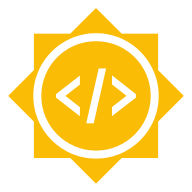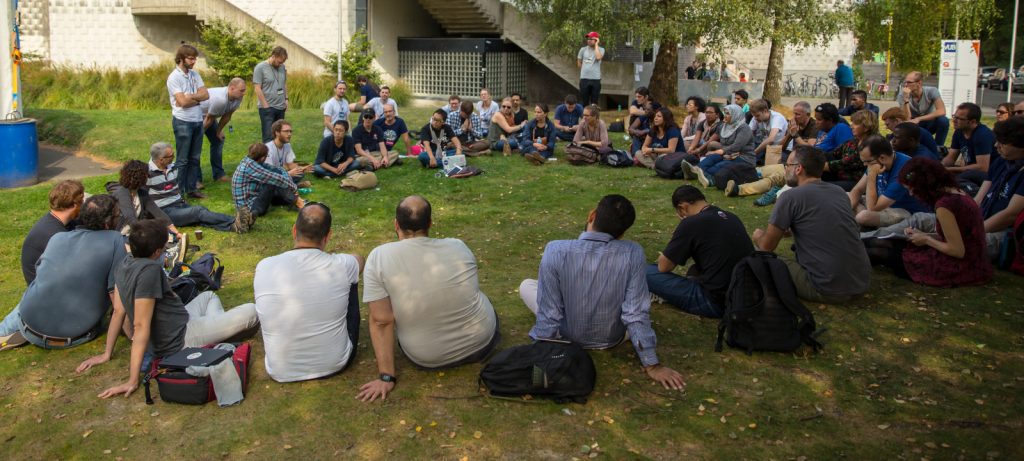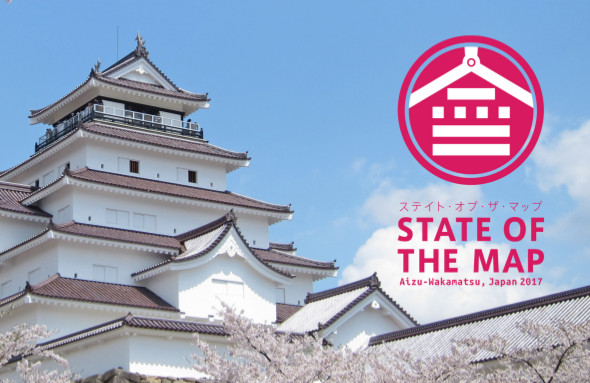
Google Summer of Code Logo (CC-BY-NC-ND 3.0 Google)
We’re now in preparation for our 10th Google Summer of Code. Over the years many students have participated and have continued to participate in the project beyond GSoC.
Organizations may apply to GSoC to become mentoring orgs until February 9th and of course we already did apply. However, we have to wait for February 27th to know if we’re accepted again. Student applications are due in April and the official coding period will be from May to July this year. For a full plan have a look at the official timeline.
If you’re an interested student, don’t hesitate and start out today. It’s never too early to make yourself known to our great project and our great community. Our project is big and we have a very broad and diverse set of tasks, and project ideas which require an equally diverse set of skills. But one thing is quite common to all of them: You should learn about our database and how mapping is supposed to be performed. So grab yourself a bit of time and go out and start mapping. Add your local grocery store, your favorite clothes shop or that one bench you love to sit on. No matter what, it’s important to get yourself familiar with OpenStreetMap. Further than that, you can have a look at our ideas’ list to see if there’s anything that you like and we’re also open to your own ideas. The best is to get on IRC or on our developers’ mailing list to introduce yourself and talk about what you want to work on.
If you’re a developer, please consider to add your good idea to our ideas’ list or add yourself as a potential mentor for one of the proposed projects. We’re always seeking for backup admins, just in case. And if you are unsure whether your idea is good enough or if it’s feasible, you know where to find the GSoC admins. Just ask.
Finally, if you’re just interested about the Summer of Code, we have a detailed recap of 2015’s GSoC, but also 2016 was a great success with a number of interesting projects and good students. In 2016 we had a total of six projects accepted, where four of them made it to the end.
Michael Zangl, a student from Germany, worked hard to reorganize the core of JOSM, our most widely used editor. He participated in 2015 as well, and he subscribed as a mentor for 2017. He wrote a detailed summary of his work and we’re happy to have him in our project and as a potential mentor this year.
Darya Golovko improved the JOSM Plugin for Public Transport (pt_assistant) i.e. by validating the public transport routes against a set of criteria, identifying errors and suggesting how to fix them. Her work is described in more detail here. Darya was a great student and it was nice to have her at our annual international conference, State of the Map.
Kushan Joshi applied for adding a visual lane editor to our javascript-based editor iD. Although he was very diligent, he didn’t complete the project as was initially planned, for no less reason than that he fixed several bugs, added features and worked on various other elements to make our editor iD even greater. As we valued his work very much, he passed last year’s Google Summer of Code without a question and you can read a detailed description of his work on his personal blog. While he is continuing his study work, he’s still with our project and contributing code from time to time.
Last but not least there’s Zabot who continued the work on OSM2World, a well known 3D converter in OSM. Although it’s a hard task to get to know all this new technology with OpenGL and shaders he did an impressive work and added several new features to the rendering pipeline, so that you now have reflections on windows and water, colors and reflectance based on the time of day, ripples in water bodies, and multi-light rendering which allows you to have nice renderings at night with illumination coming from street lamps. Even though he didn’t stick with our project, his work is much appreciated and you can read more about it on his personal diary.
Reading all that you really should go out and have a look what you can do to help our project. We’re searching for you and your helping hand. And even without you being a student (in Google Summer of Code) we’ll greatly appreciate your help. Be it as a developer for a specific task or project idea or as a mapper to make our map even greater than it is already now.
Hope to see you soon.



